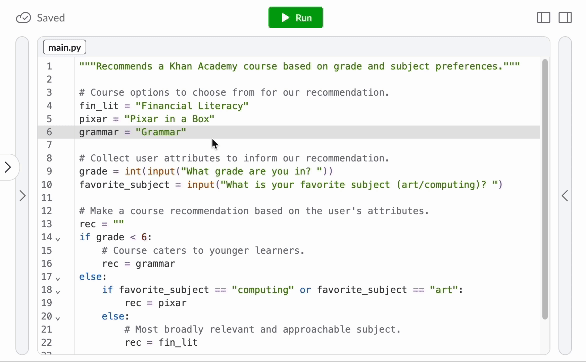So what I'm doing here so far is trying to teach myself python while maybe teaching some of you as well?
We will see if this works or not. However, mostly I will likely benefit by trying to teach others what I don't fully know yet.
begin partial quote of:
https://www.khanacademy.org/computing/intro-to-python-fundamentals/x5279a44ae0ab15d6:computational-thinking-with-variables/x5279a44ae0ab15d6:the-programming-platform/a/using-the-development-environment
Most programmers use integrated development environments (IDEs)
to create their programs. IDEs combine tools for writing, running, and
testing code into a single platform to make it easier and faster to get
our work done.
For this course, we'll be using Khan Academy's online Python IDE.
Writing code: the code editor
The first thing we'll need is somewhere to write code. A code editor is a text editor specialized for a programming language.
Code
editors work just like your favorite docs app. We type in it and text
appears - nothing fancy here. But, instead of English, its built-in
tools observe the rules of a particular programming language.

No comments:
Post a Comment